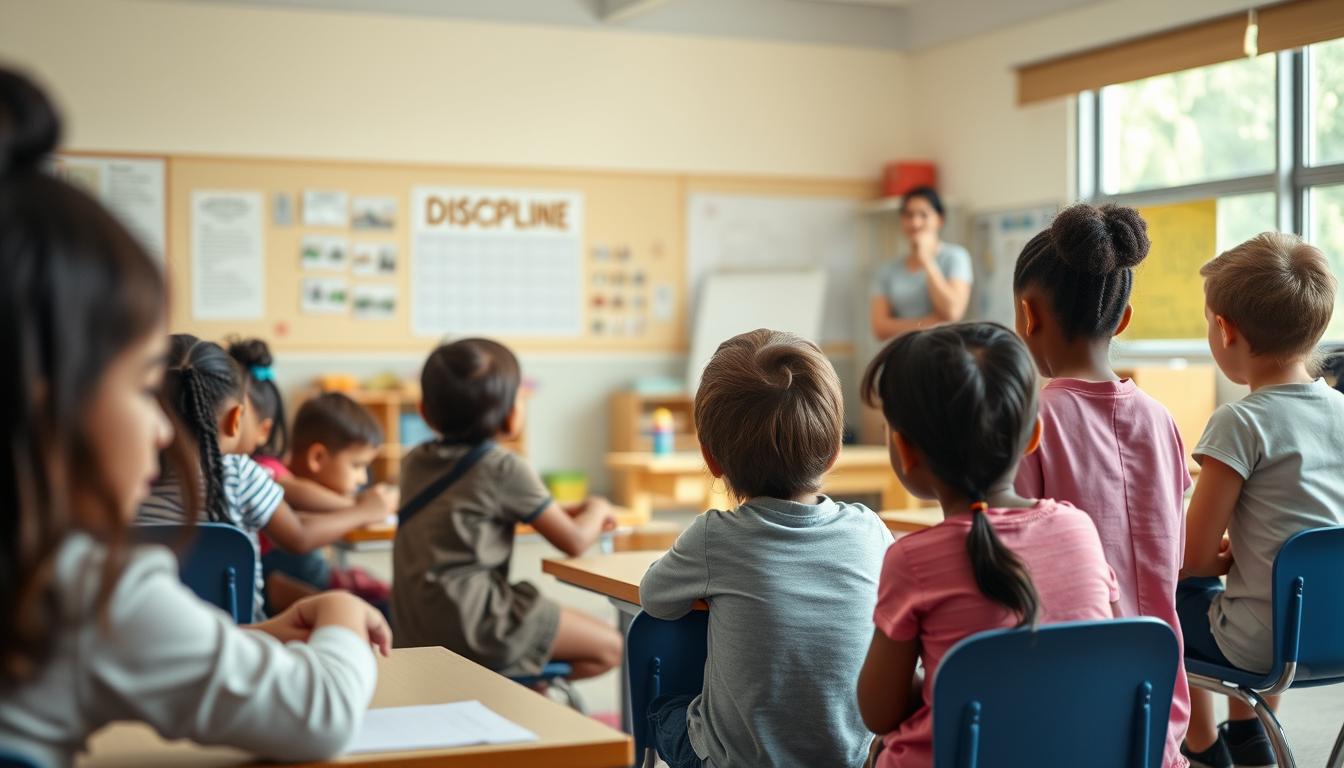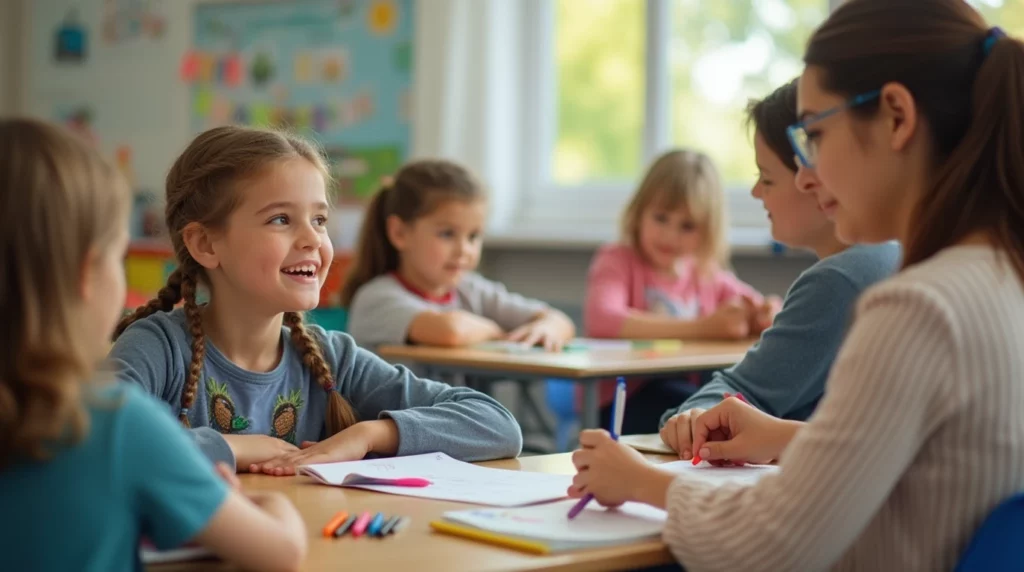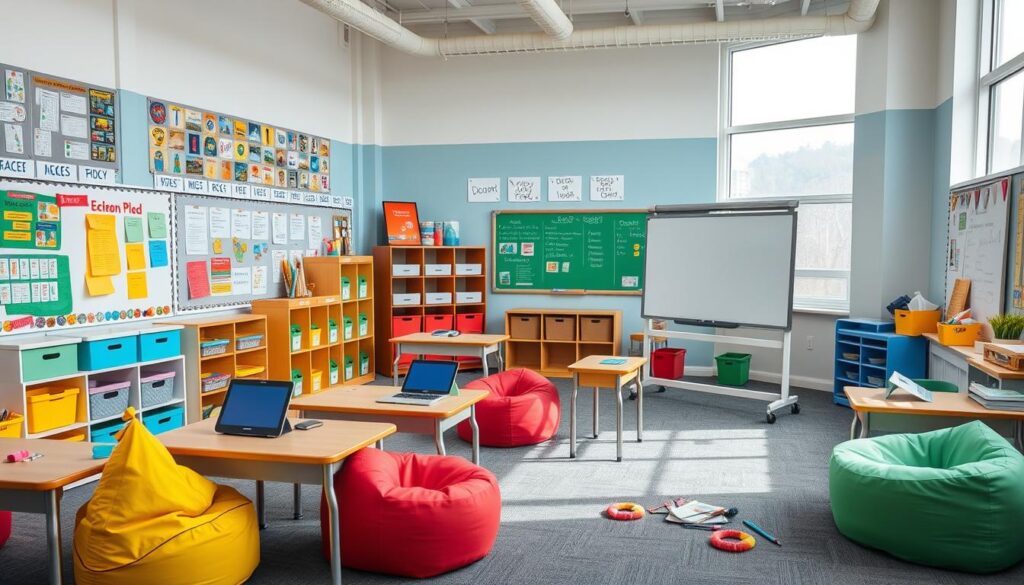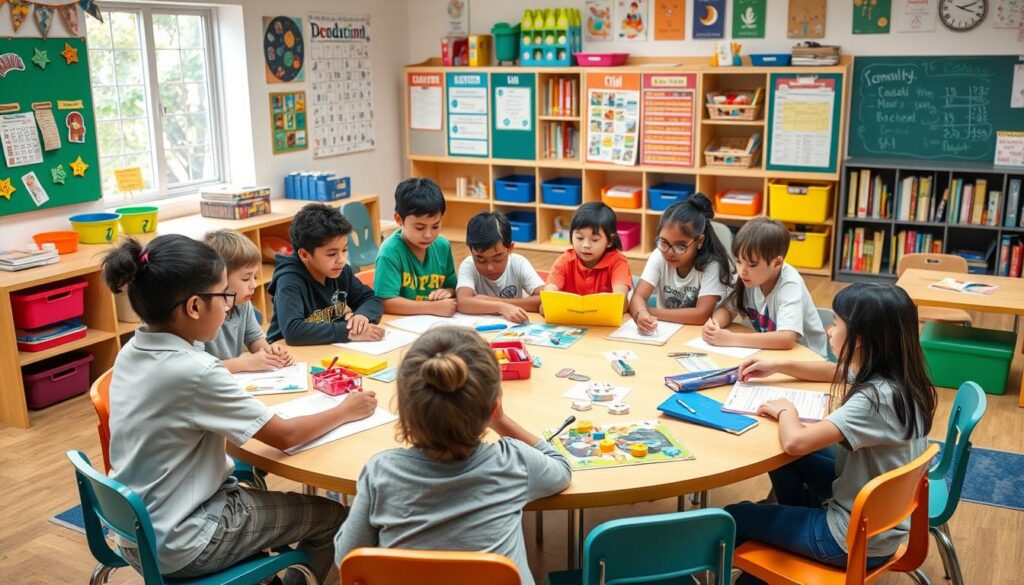School Phobia: Causes, Symptoms, and Effective Solutions

Table of Contents
School phobia is a significant psychological challenge affecting many students, manifesting as intense anxiety and fear related to attending school. A comprehensive understanding of this phenomenon is crucial for effective intervention.
More than just a simple dislike, school phobia is a serious issue that profoundly impacts a student’s mental well-being and academic progress. This article delves into the various dimensions of school phobia to foster a deeper understanding and facilitate better support.
What is School Phobia and How Does it Affect Students?
School phobia is distinct from mere reluctance to attend school; it’s characterized by an overwhelming state of anxiety and fear specifically directed towards the school environment. This disorder often presents as pathological anxiety in affected students.
Its impact on students is profound and can significantly disrupt their lives, leading to:
- Increased learning difficulties
- Decreased self-confidence
- Social isolation
- Persistent psychological stress
Children experiencing school phobia often feel intense anxiety and fear at the thought of school. They may also exhibit physical symptoms such as:
- Stomach pains
- Headaches
- Trembling
- Sweating
“School phobia is not merely laziness or defiance; it is a genuine psychological disorder that demands understanding and support.”
Recognizing its potential impact on a student’s academic and psychological future is vital. It must be addressed with sensitivity and empathy.
Psychological and Social Causes of School Phobia

School phobia is a multifaceted condition stemming from various psychological and social factors. Understanding these underlying causes is fundamental to helping students overcome their fears.
Psychological Factors
Psychological pressures significantly contribute to school phobia. Some students may suffer from:
- Chronic anxiety
- Low self-esteem
- Concentration difficulties
Social and Family Pressures
School bullying can create a terrifying environment for students. Studies indicate that:
| Type of Pressure | Impact Percentage |
|---|---|
| Verbal bullying | 45% |
| Physical bullying | 30% |
| Cyberbullying | 25% |
Previous Negative Experiences
Past traumatic experiences, such as academic failure or public embarrassment, can leave deep psychological scars and exacerbate school phobia.
“Fear of school is not a weakness, but a clear indicator of a child’s need for support and understanding.”
Physical and Psychological Symptoms of School Phobia
School phobia is a psychological disorder that manifests differently in each child, posing a unique challenge for parents and educators.
Common physical symptoms of anxiety include:
- Severe and recurrent abdominal pain
- Sudden headaches
- Nausea and stomach cramps
- Excessive sweating
- Trembling hands
Psychological symptoms, on the other hand, often involve:
- Severe anxiety before school
- Sudden panic attacks
- Social withdrawal
- Difficulty concentrating
| Symptom Type | Impact on Child | Severity |
|---|---|---|
| Physical | Direct impact on health | Moderate |
| Psychological | Impact on social development | High |
“Early detection of school phobia symptoms is the key to effective management and intervention.”
It is important to remember that each child expresses school phobia symptoms uniquely. Accurate diagnosis and tailored support are crucial to help the child navigate this challenging phase.
How to Identify Early Signs of School Phobia
Early identification of student struggles is paramount in helping children overcome school phobia. Changes in a child’s behavior can manifest in various ways.
Initial Behavioral Changes
Signs of school phobia often appear through observable behaviors, including:
- Frequent refusal to go to school
- Feigning illness in the morning to avoid school
- Severe anxiety before school hours
- A constant desire to remain close to parents
Emotional Indicators
A child with school phobia often experiences complex emotional states, such as:
- Persistent sadness when school is mentioned
- Stress and psychological distress
- Low self-esteem
- Difficulty communicating with peers
Academic Signs
A decline in academic performance is a crucial indicator for the early detection of student problems:
- Sudden drop in grades
- Difficulty concentrating during classes
- Lack of participation in classroom activities
- Avoiding school tasks and homework
Early attention and appropriate support can significantly help the child overcome their fears and positively adapt to the school environment.
The Role of Family in Addressing School Phobia
Family support is paramount in alleviating school phobia. Open communication with the child is instrumental in understanding their fears and providing effective support.
Here are ways families can help a child:
- Listen empathetically to the child’s feelings
- Create a safe and supportive home environment
- Encourage open communication
Building self-confidence requires consistent effort. Parents can boost a child’s confidence by:
- Providing continuous praise and encouragement
- Helping them face their fears gradually
- Enhancing their social skills
| Strategy | Impact |
|---|---|
| Active listening | Reduced anxiety and enhanced confidence |
| Communication with school | Better understanding of challenges |
| Shared activities | Strengthening emotional bond |
Remember that every child is unique, so support should be tailored to their specific needs.
“Continuous family support is the cornerstone of a child’s success in overcoming school fears.”
Effective Treatment Strategies to Overcome School Phobia

Treating school phobia necessitates a comprehensive approach. Here are effective strategies to help children overcome their school-related fears.
Cognitive Behavioral Therapy: Key to Psychological Transformation
Cognitive Behavioral Therapy (CBT) is considered one of the most effective methods. It focuses on:
- Identifying negative thoughts associated with school
- Challenging unrealistic beliefs
- Developing positive thinking strategies
Relaxation Techniques for Children: Deep Calm and Increased Confidence
Relaxation techniques help significantly reduce stress. Focus on:
- Deep breathing exercises
- Simple meditation
- Progressive muscle relaxation
Building Self-Confidence: A Path to Gradual Success
Self-confidence is crucial in treating school phobia. This can be achieved through:
- Setting small, achievable goals
- Celebrating every achievement, no matter how small
- Encouraging open expression of feelings
“Confidence is built step by step, and success is achieved with patience and perseverance.”
It is important to emphasize that treating school phobia demands patience and strong cooperation between parents and specialists.
Practical Tips for Teachers in Dealing with Affected Students
A teacher’s role is critical in assisting students with school phobia. Understanding the psychological challenges these students face opens the door to providing appropriate support.
To foster a positive learning environment, it’s essential to employ thoughtful strategies. Here are some tips for educators:
- Build a safe and comfortable communication relationship with the student
- Recognize early signs of anxiety
- Modify educational activities to suit the student’s needs
It is necessary to focus on supporting students individually. This can be achieved by:
- Listening empathetically
- Providing continuous encouragement
- Boosting self-confidence
“Understanding and patience are key to successfully supporting students affected by school phobia.”
Teachers should collaborate closely with students’ families to provide comprehensive support. Regular communication helps in better understanding the student’s evolving needs.
Professional Intervention: When to Consult Specialists

School phobia is a complex condition that often requires specialized treatment. Psychological counseling for children is essential if they experience persistent or severe symptoms.
Here are indicators when you should consider contacting a psychologist:
- Fear symptoms that persist for more than a month
- Significant negative impact on academic performance
- Recurrent physical symptoms like headaches and vomiting without medical cause
- Frequent refusal to attend school
The Role of the Psychologist
The psychologist plays a vital role in treating school phobia. They will typically:
- Conduct interviews with the child and family
- Identify the primary sources of anxiety
- Design a personalized treatment plan
- Apply cognitive behavioral therapy techniques
Medication When Necessary
In some cases, a specialist may recommend medication. However, this is always under strict medical supervision and only after a comprehensive assessment of the child’s condition.
Remember: Successful treatment depends on accurate diagnosis, early intervention, and continuous support.
Conclusion
Understanding school phobia underscores the critical importance of supporting students’ mental health. Overcoming this phobia requires concerted efforts from family, school, and specialists. Early intervention can make a profound difference in a child’s life.
Timely diagnosis and consistent support form the bedrock of academic success. Every student deserves a safe and nurturing learning environment that empowers them to overcome their fears and build confidence.
We urge parents and teachers to approach students with understanding and patience. Empathy and psychological support are vital in restoring their confidence, thereby helping them achieve their full potential.
Let us always remember: School phobia is a challenge that can be overcome, not a definitive judgment on a student’s future.
Frequently Asked Questions (FAQ): School Phobia
What exactly is school phobia?
School phobia is a psychological condition where the student feels intense fear of school. This affects their mental health and academic performance.
What are the main symptoms of school phobia?
Key symptoms include abdominal pain and headaches. The child may want to stay home. They also show severe anxiety and difficulty sleeping.
Emotional signs like stress and sadness when thinking about school may also appear.
How can parents help their children with school phobia?
Parents should listen empathetically. Creating a supportive environment is very important. Open communication with the child is essential.
It is also important to cooperate with the school. Encourage the child to face their fears gradually. Consult a psychologist if necessary.
Is school phobia a serious condition?
School phobia is serious if left untreated. It can lead to long-term academic difficulties, social isolation, and persistent anxiety. Early intervention is crucial to prevent these negative impacts.



